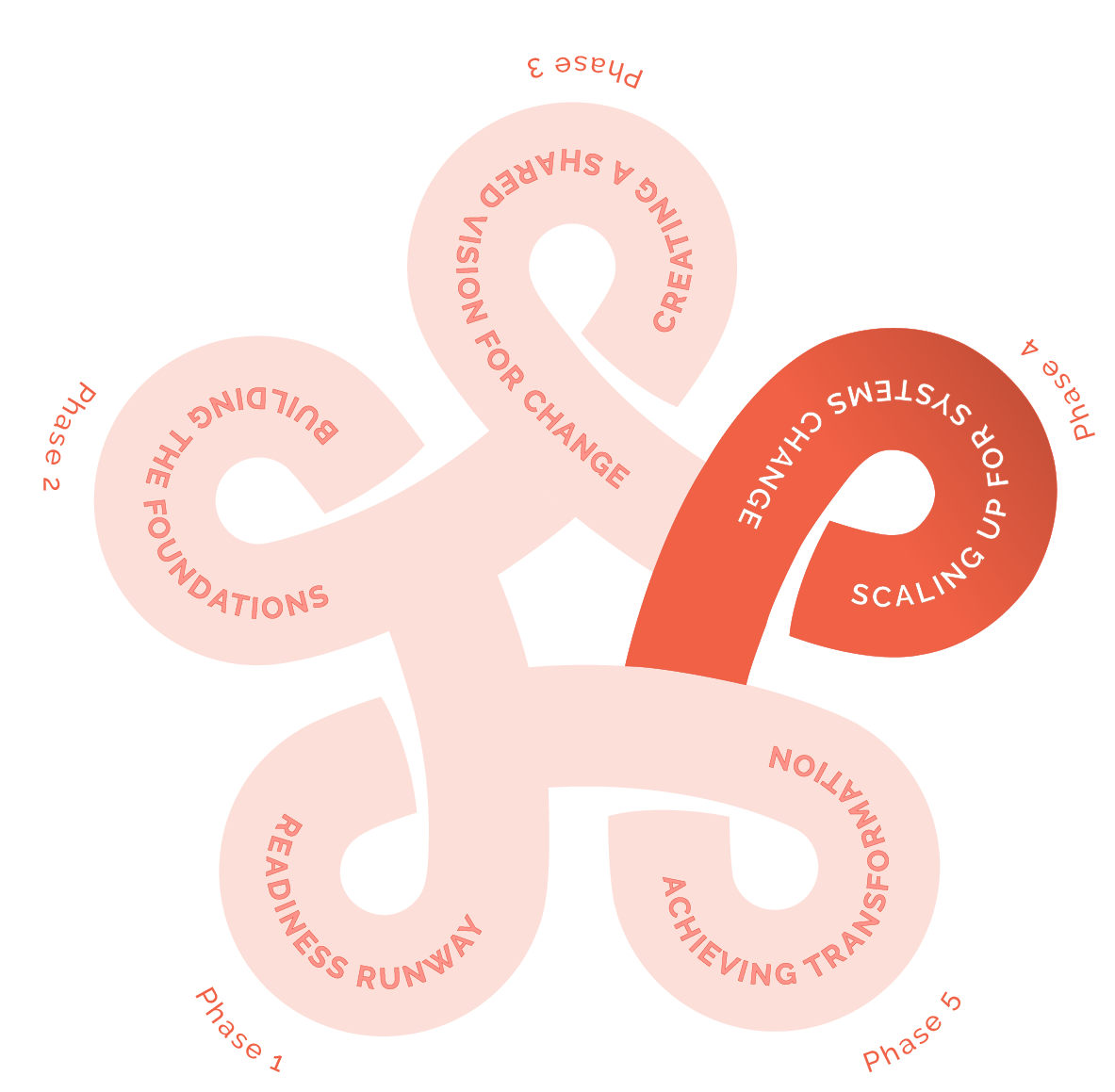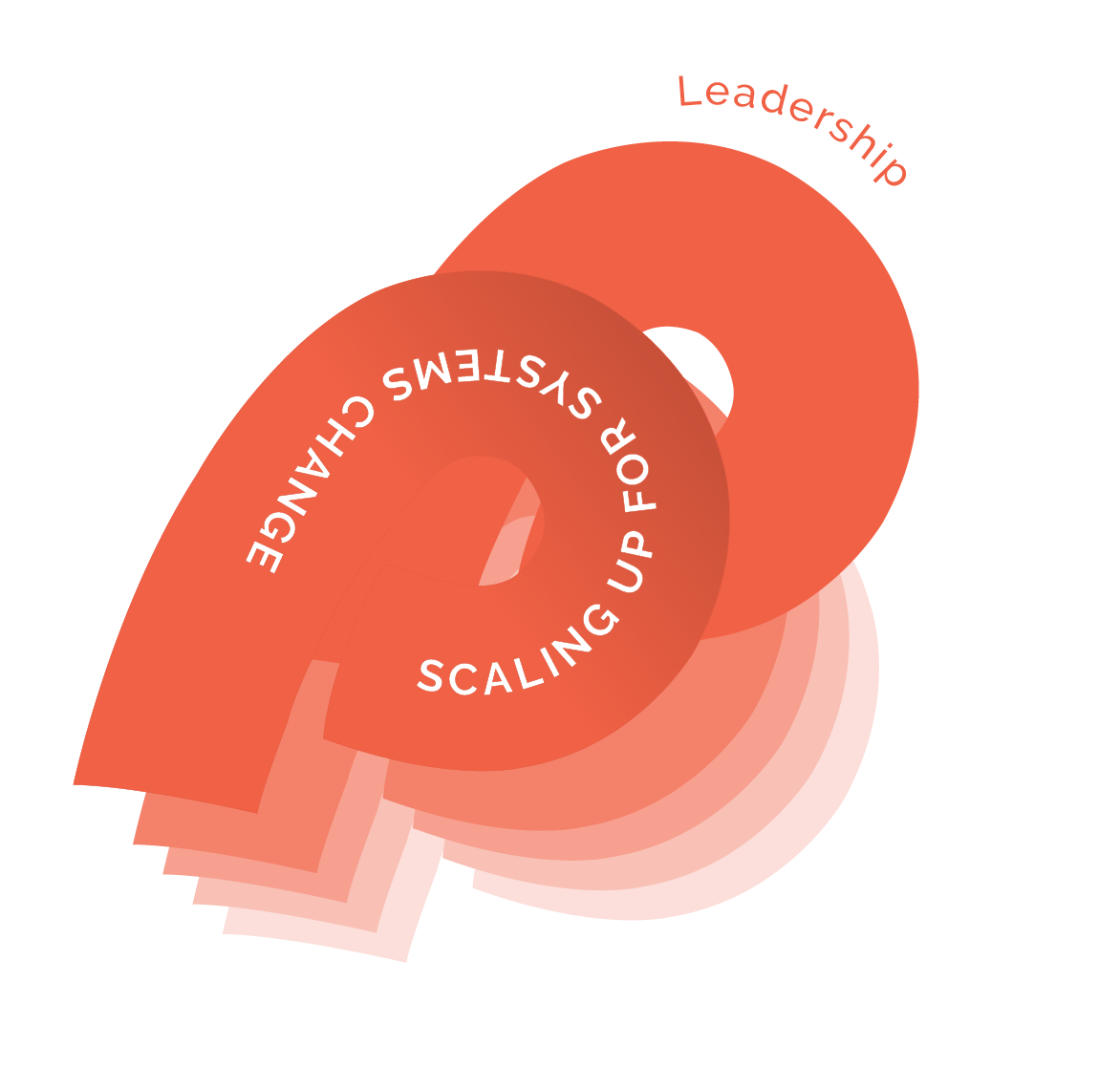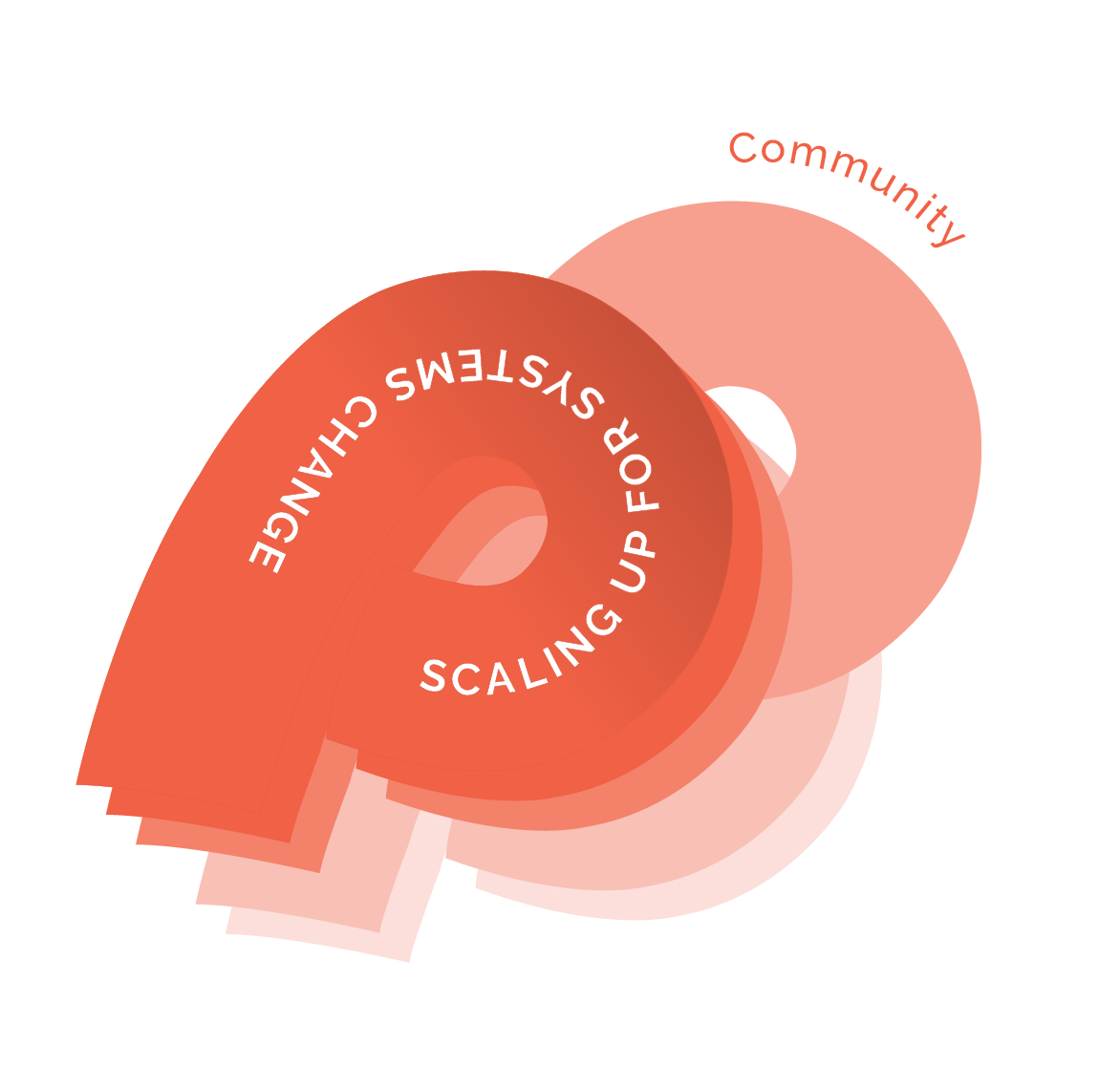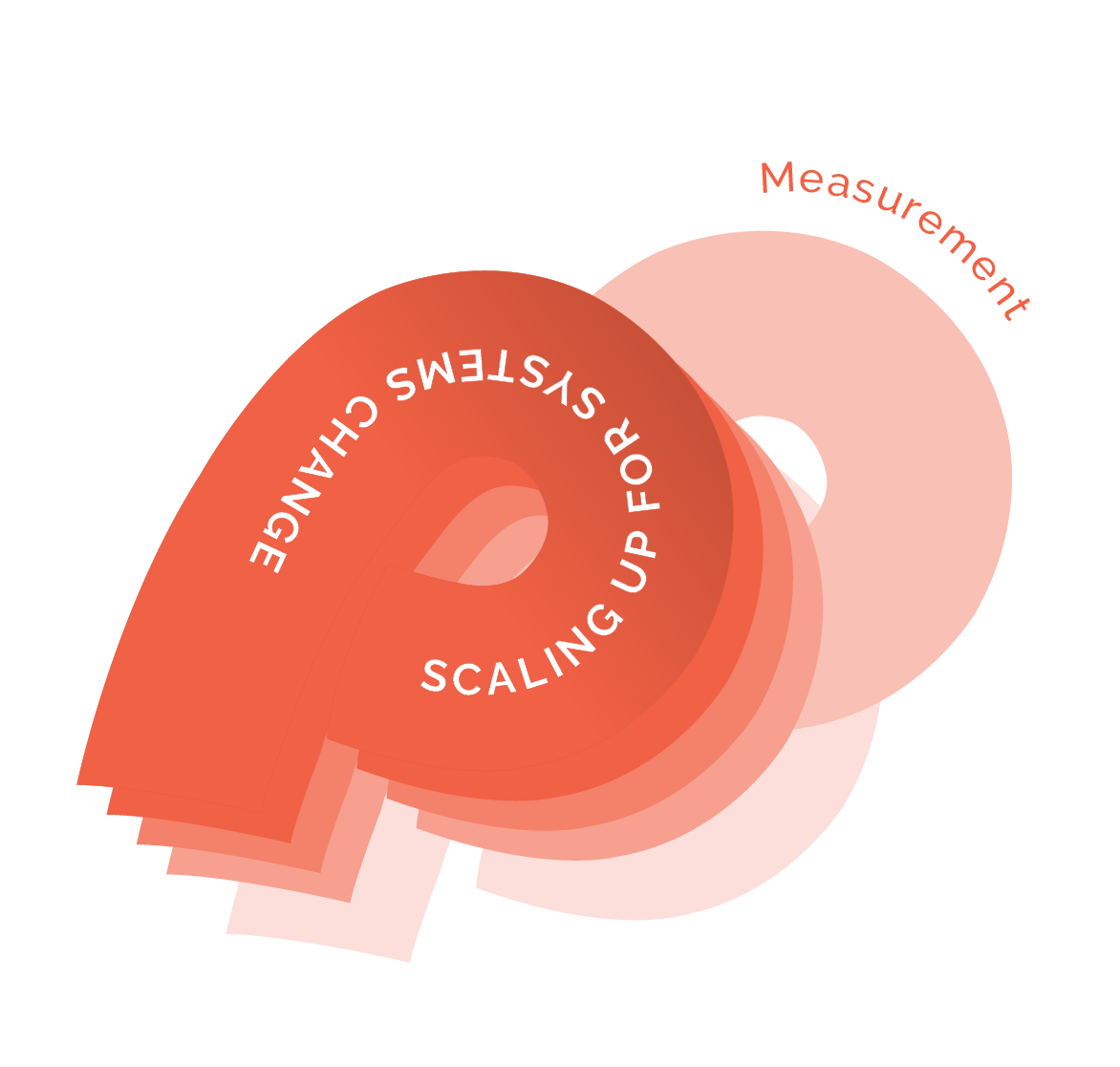Phase 4. Scaling Up

At the 'Scaling Up' phase
The emphasis is on building capacity to grow successful ‘test and try’ initiatives from previous phases and to amplify their impact. It is also about building the infrastructure needed for system change, including stronger collaborative governance structures with increasing authority to steward the shared agenda and systems change required. The skills of the 'backbone' team may need to grow to ensure nimble measurement and learning functions are able to provide data and insights to guide the testing and trying of significant hypothesis in the shared agenda, as well as scaling what works. It can also require strategic communication functions for driving behaviour change and movement making as well as advocacy functions.
It is worth noting that, unlike scaling in a commercial context, the scaling of social innovation is more often about ideas and processes rather than products. The challenge is to scale for higher social impact, not simply greater market reach or profit. To this end, most initiatives tend to blend different strategies for scaling. We use the term scaling up, but there are in distinct types of scaling including scaling out (to reach more people), scaling up (to shift systems) and scaling deep (to influence culture). Scaling is rarely a linear process. Instead, be ready for an iterative and long-term process of adaptation and change.
How do you know you are at the ‘Scaling Up for Systems Change’ phase?
Some of the things you may see happening in your community include...
- Enough trust exists between people and organisations to challenge existing ways of working.
- Indicators are showing increased trust and support across the collaboration, sectors and the community.
- The shared agenda is gaining traction and authority, and the shared purpose keeps the collaboration on track.
- People are taking on more responsibility and the leadership group is growing their authority and influence.
- Leaders work intentionally to protect and embed the work into their organisations and power structures for the long term.
- Learning and progress are celebrated and communicated to maintain momentum and keep people engaged.
- The 'backbone' entity takes up a full convening and coordination role and are enabling the leadership table and working groups to undertake the work and community members to self-organise in support of the agenda and lead/co-produce parts of the change.
- The backbone is also building the infrastructure needed for implementing transformational change - shared measurement systems, the facilitation of strategic learning, and strategic communications that support behaviour change.
- Resources and funds are allocated and managed in a more responsive and integrated way, with a focus on building on ‘what works’.
- Partner organisations are contributing resources to support the work and efforts are underway to source sustainable funding and resources.
Scaling Up Case studies

Role of Government
In the phase ‘Creating a Shared Vision for Change’ a common agenda is emerging together with a roadmap to guide the work. Purpose and roles are becoming clearer. You will be asked how government programs or services can be aligned to the agenda. The role of government in this phase includes: connector, influencer, champion, learner and funder.

Role of Philantropy
This phase is about significantly gearing up for impact. To date, significant changes have occurred in the way people and institutions collectively think and work, but there has not yet been significant improvements in outcomes (impact has happened – but small scale and in pockets).
Explore tools and resources
Find tools and resources relevant to each Phase and Layer of the Collaborative Change Cycle
Get help and support
Access support to help you in each Phase of the Collaborative Change Cycle
Find your crowd
Learn about and connect with other change initiatives around Australia
Change Cycle Locator Tool
Take the quick survey to work out where you are on your change journey and access information specific to your needs








